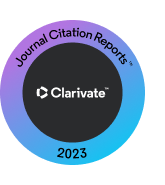GLOBAL ANALYSIS OF THE CHARACTERISTICS OF URBAN RESIDENTIAL WASTE FRACTIONS
DOI:
https://doi.org/10.5327/Z2176-9478201510914Keywords:
resíduos sólidos; correlação de Pearson; regressão linear.Abstract
Solid waste management is considered one of today’s challenges and its efficient promotion requires knowledge of the nature and composition. Thus, this study aims to determine an average total waste generation, distributed in developed, developing and underdeveloped, including the analysis of linear regression and Pearson’s correlation countries. The methodology is a quantitative approach, based on a literature search. The results reveal that the average generation of organic operates as a determinant of the fraction of municipal waste, but are distinguished as the variable with which it correlates. The average generation of organic waste in developed countries, developing and underdeveloped, respectively, is 34.32, 61.33 and 64.21%. In conclusion that the fraction of the middle generation of organic waste in developing and underdeveloped countries is roughly similar features.Downloads
Downloads
Published
2015-12-30
How to Cite
Feil, A. A., Spilki, F. R., & Schreiber, D. (2015). GLOBAL ANALYSIS OF THE CHARACTERISTICS OF URBAN RESIDENTIAL WASTE FRACTIONS. Revista Brasileira De Ciências Ambientais, (38), 63–77. https://doi.org/10.5327/Z2176-9478201510914
Issue
Section
Articles
License
Copyright (c) 2015 Revista Brasileira de Ciências Ambientais

This work is licensed under a Creative Commons Attribution 4.0 International License.



























